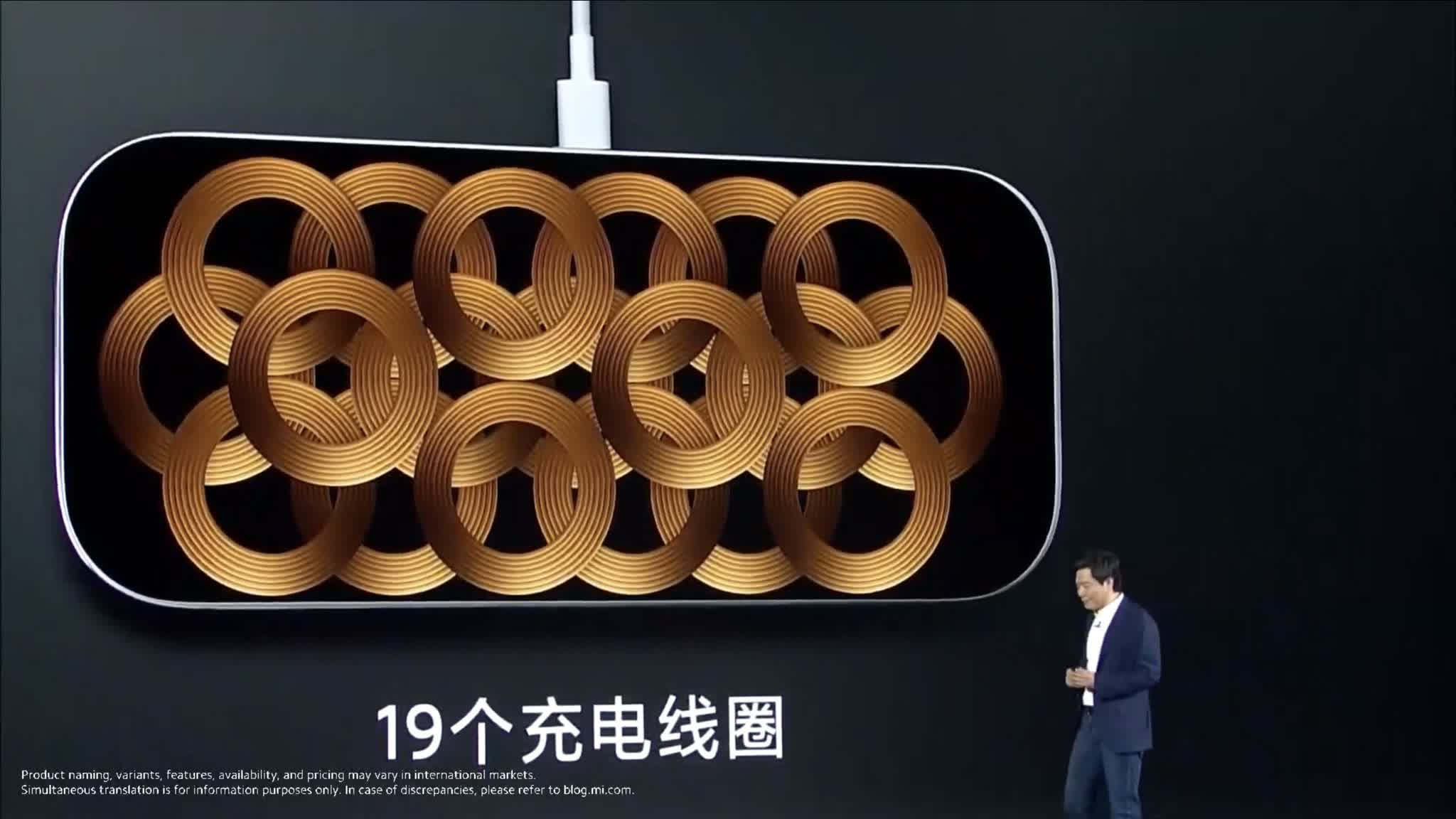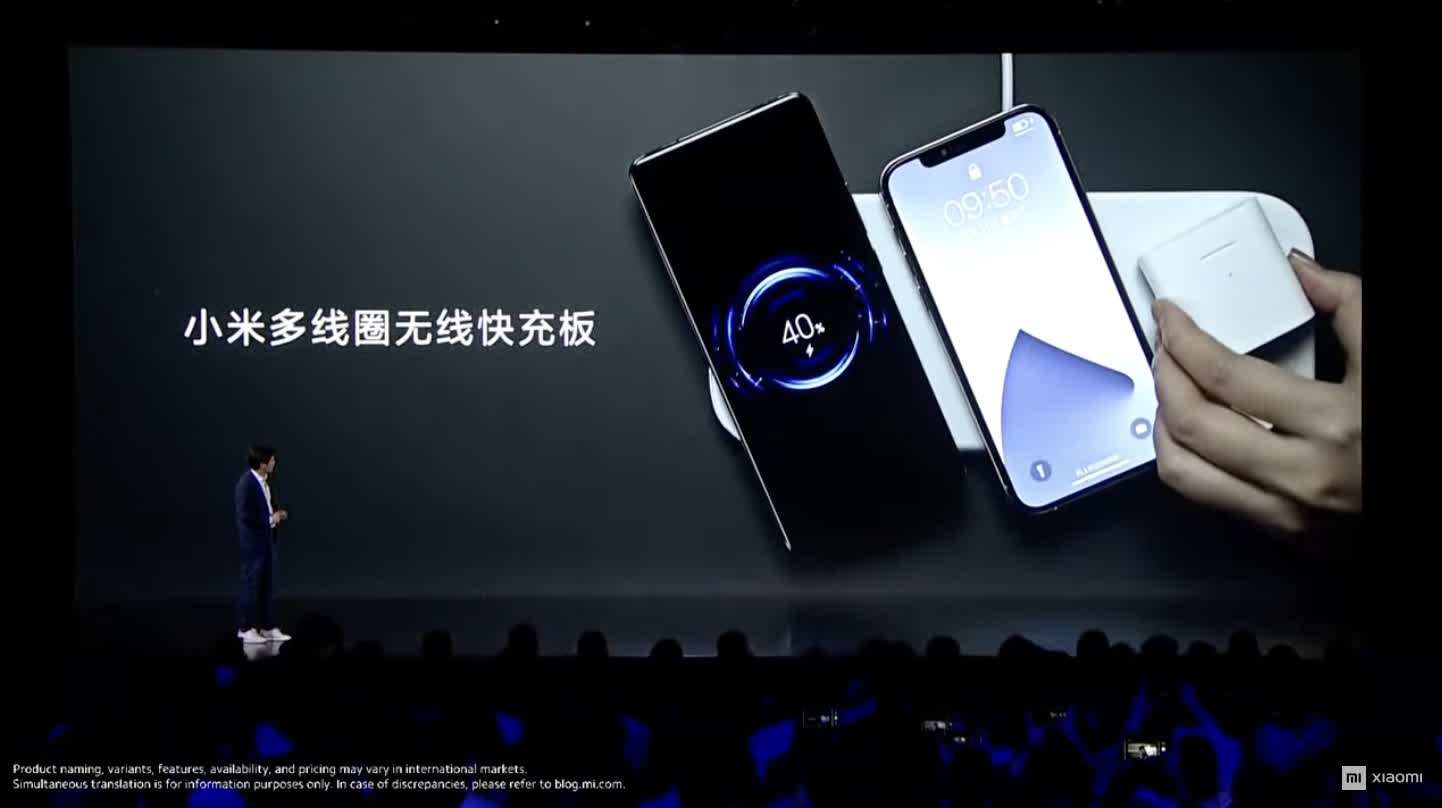In brief: Apple may have given up on its somewhat ambitious AirPower project, but other companies like Aira and Xiaomi are doing their best to fill the gap. In the case of Xiaomi, that means a sub-$100 wireless charging pad that not only looks like AirPower, but promises to fast-charge up to three devices that you don't have to carefully place on predefined places for optimal charging.
Xiaomi today held a launch event for its latest Mi 11 smartphone lineup, along with several accessories that are supposed to enhance their appeal. One of those accessories is a wireless charging pad that adds to a growing list of AirPower clones, but at the same time is a much closer approximation of the latter project.
The Chinese company says the charging pad is capable of charging three Qi-compatible devices at once with up to 20 watts per device. Xiaomi phones should soon be able to charge at up to 80 watts, thanks to the integrated Mi Wireless Charging Technology that can reportedly fill up a 4,000 mAh battery to 10 percent in just one minute, 50 percent in 8 minutes, and 100 percent in about 20 minutes. In the case of the Mi 11 Ultra and Mi 11 Pro, they'll charge at up to 67 watts.

The new charging pad features 19 embedded coils that are arranged in a similar fashion to those in the unreleased AirPower, affording users the luxury of just dropping devices anywhere on the pad. There's only one other AirPower clone that sports a similar design – Aira's Nomad Base Station Pro, which has 18 coils but is limited to 5 watts per device (7.5 watts for iPhones) and is not exactly affordable at $200.
Like the Nomad, Xiaomi's new wireless charging pad won't be able to charge an Apple Watch, but the company did explicitly showcase the ability to charge an iPhone.
The company's focus was to make it affordable though, which explains the 599 yuan pricing (around $91) which includes a 120-watt power brick. People who buy the Special Edition Mi 11 Pro bundle will get the wireless charger and power brick for just 199 yuan (around $30) on top of what the phone costs.
Some of you may recall that Apple scrapped AirPower in 2019, presumably because of overheating and interference issues related to the multi-coil design and control circuitry. In the keynote, Xiaomi CEO Lei Jun explained his company started working on its wireless charging pad right when Apple officially gave up on it, and noted that overheating was indeed the hardest problem to solve.
The key disadvantage of Xiaomi's AirPower clone is that it's limited to Chinese customers, with no word on international availability yet. That said, there's a good chance it will get imported into regions like the EU if it proves a commercial success.
